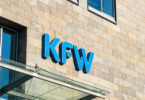Today Japanese firms Nomura Holdings and Nomura Research Institute (NRI) have established a joint venture company to build a blockchain platform for the exchange of securities. The company, named BOOSTRY, has kicked off with $11 million capital.
BOOSTRY’s incorporation has occurred according to the firm’s timeline. As we reported last month, Nomura and NRI first worked together on blockchain projects in 2015 and signed a memorandum of understanding for this project in June.
Nomura is a financial services firm with net revenues of over $10 billion. It owns just over a third of the shares of IT service provider and consultancy company NRI. Their newly established joint venture is 66% owned by Nomura and 34% by NRI.
While the firms hoped to have BOOSTRY’s platform up and running by the end of this summer, it is unclear whether the technology is ready. Additionally, the original plan was to start the venture with over $23 million capital but it was established today with less than half that sum.
The platform aims to facilitate streamlined trading of securities, particularly corporate bonds. Issuing bonds is costly and admin heavy, so often a few high-value ones are raised as opposed to multiple smaller value ones. This makes bond issuance more difficult for firms with lower capital.
Automating the administration part with blockchain-powered smart contracts allows for secure and trustworthy verification plus less reliance on paper documents. As revealed last month, BOOSTRY will use Digital Asset’s smart contracting language DAML. Digital Asset is already a partner of NRI India, who have a separate blockchain project using DAML on the go.
Meanwhile, Nomura has relationships with Digital Asset, Hedera Hashgraph, and R3. It has also invested in smart contracting firm Quantstamp and fintech company Omise, but it appears neither will be involved with BOOSTRY.
Securities trading and bond issuance is a highly active area in blockchain usage. Since Nomura and NRI’s previous announcement last month, the World Bank raised $34 million for ‘bond-I’, its blockchain bond. Spanish bank BBVA has conducted at least eight blockchain pilots for issuing different types of bonds. In March, the Gibraltar Stock Exchange unveiled a blockchain bond issuance platform. And a year ago, JP Morgan was involved in a Certificate of Deposit issued by the National Bank of Canada.






